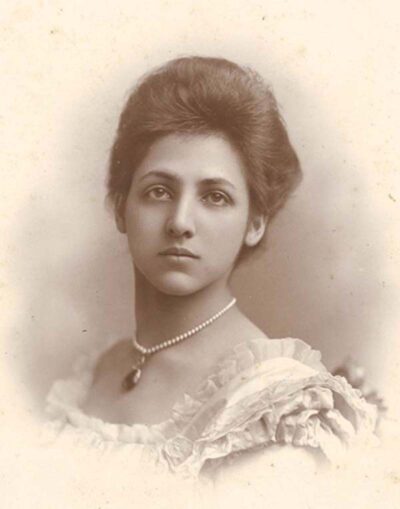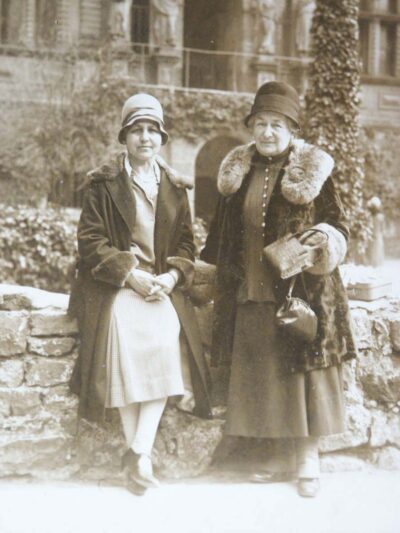Welcome to the first in a series of profiles written by Somerville students about our lesser-known LGBTQ+ alumni, in honour of February, LGBTQ+ History month.

Catherine Duleep Singh
Somerville JCR LGBTQ Rep Lucy Pollock begins by focusing on a woman too great to be adequately described: Catherine Duleep Singh (1871-1942).
Catherine Duleep Singh was the daughter of Maharajah Duleep Singh – the last Maharaja of the Sikh Empire, who was exiled to Britain in 1854 following his deposition by the British Crown after the last Anglo-Sikh war in 1849. As his Punjab kingdom was seized by the British, he befriended Queen Victoria and assimilated into Victorian aristocratic society. It was in this society that Catherine was brought up. In the midst of her oppressors, her residences paid for by the East India Company – the corporation that was ravaging her ancestral kingdom, Catherine was fashioned into a young Victorian elite. Despite British attempts at her assimilation, Catherine remained knowledgeable about her heritage and would visit Lahore, Kashmir, Dalhousie, Simla, and the Sikh Holy City of Amritsar in Punjab.
Aged 19 in 1890, she came to Somerville, where she stayed until 1894. She studied French and German, but also received private instruction in violin, singing and swimming (one can only wonder whether she, too, loved the Park Music Room). She did not receive a degree, and could not even qualify for one until 1920.
Perhaps it was xenophobia among Victorian aristocrats and misogyny in Oxford that shaped Catherine into the extraordinary woman that she was. She became an active member of the Women’s Rights movement and was a Suffragist, having joined the Fawcett Women’s Suffrage group and National Union of Women’s Suffrage Societies. She campaigned valiantly for British women’s right to vote, along with her sister, Sophia. By 1928, when all women over 21 were finally enfranchised, Catherine had been living in Germany for two decades, having moved in 1908 with her former governess and life partner, Lina Schäfer, to live in Lina’s house in Kassel.

Catherine and her partner Lina
The couple lived in Germany throughout World War One, despite Catherine’s brother, Frederick, being in active service for the British. But far worse times were to come. The 1930s saw the rise of the Nazi party, and this caused an increase in racism towards Catherine. She was determined to stay with her aging lover, Lina, however. Despite advice from friends, Catherine refused to leave Germany until after Lina’s death in 1938. A few months after, Catherine sold everything and returned to England.
When looking into Catherine’s life originally, I knew I felt a connection to her. She left Germany at almost exactly the same time as my own family, who left immediately after Kristellnacht. For both Catherine and the few family members of mine who managed to escape, November 1938 would probably have been their last chance.
Catherine was too extraordinary to have only saved herself. Whilst much of the world ignored the antisemitism that was rampant in Germany, Catherine helped several Jewish families escape before she left. One example among many was Dr Hornstein, her friend, who had been arrested during Kristellnacht and interned at a concentration camp near Berlin. Catherine helped secure his release, and helped him escape. She then housed the Jews she had helped save in Coalhatch House, Buckinghamshire: not only saving them, but also giving them somewhere safe to escape to.
Princess Catherine Duleep Singh began life as an exiled Indian former princess, growing up in an alien society determined to either hate her or force her to conform. She did not conform. Instead, she campaigned for the rights of those less privileged than herself and helped those who couldn’t help themselves. A true LGBTQ+ icon, who put herself at risk for the comfort of her aging lover, and the very essence of the Somerville motto: include the excluded. Catherine did not just include the excluded: she saved them, campaigned for them, fought for them.